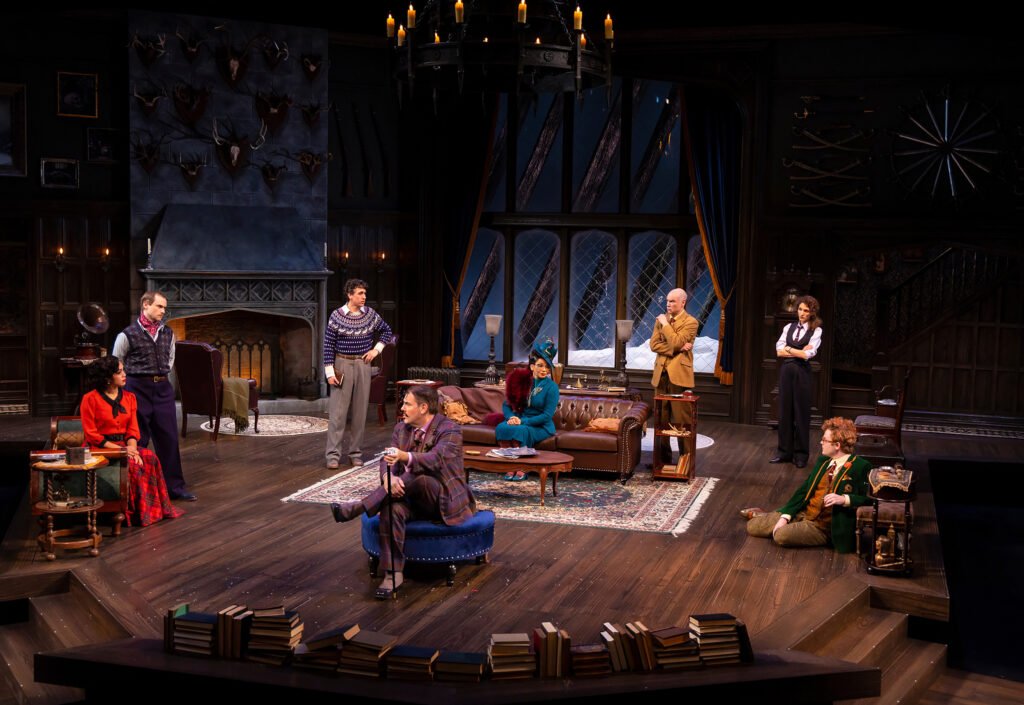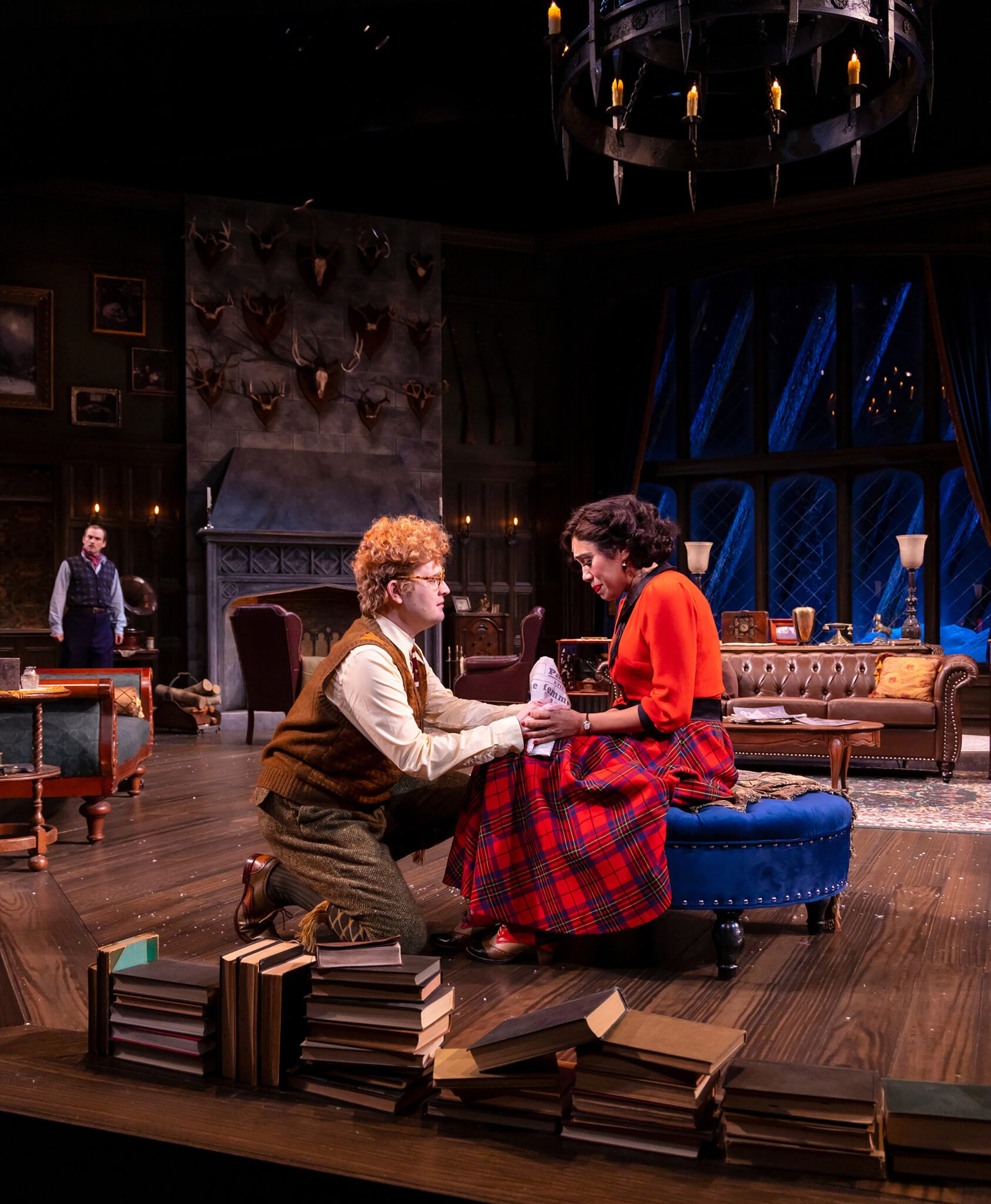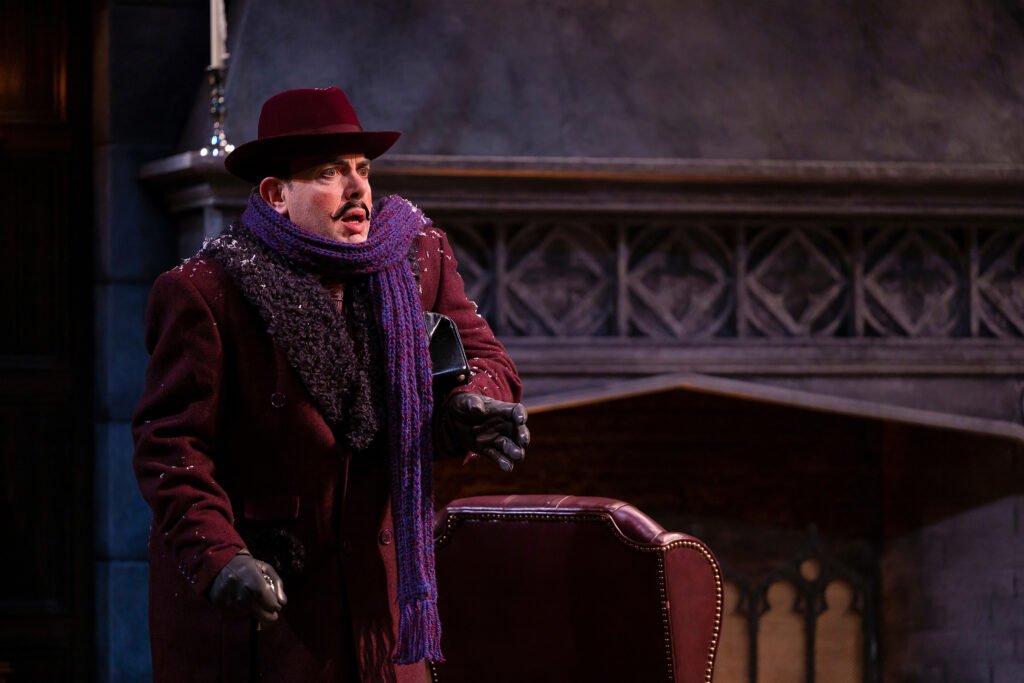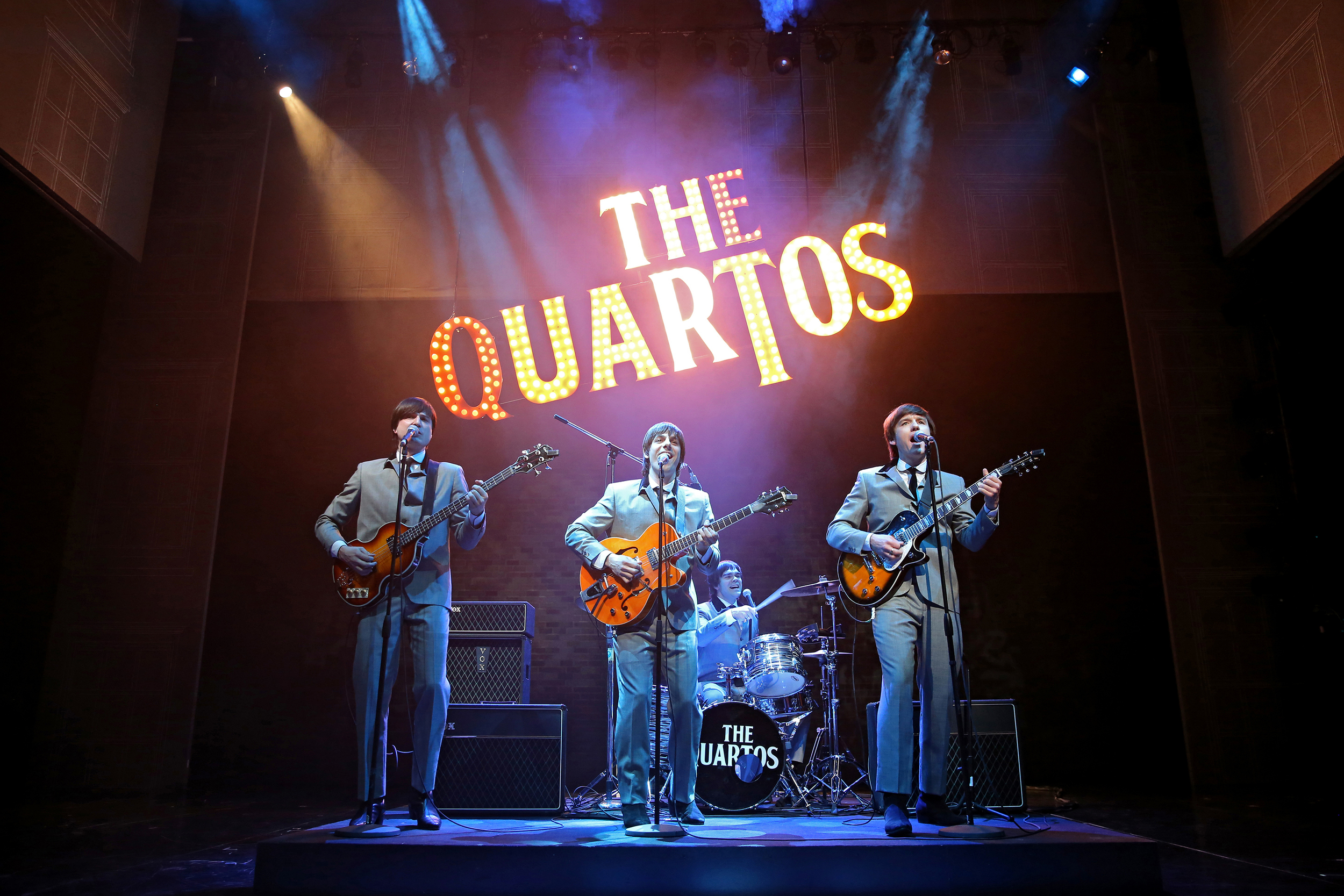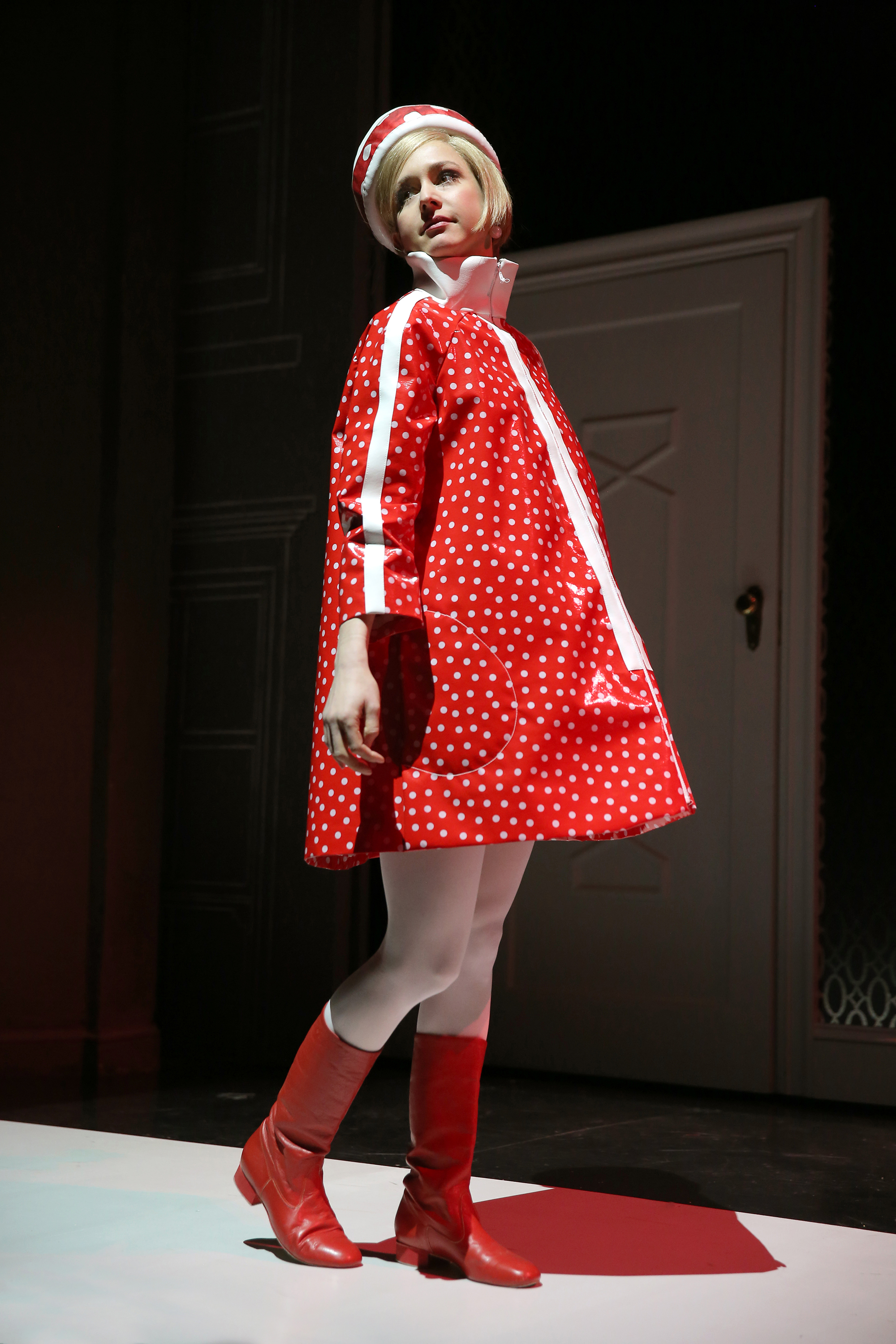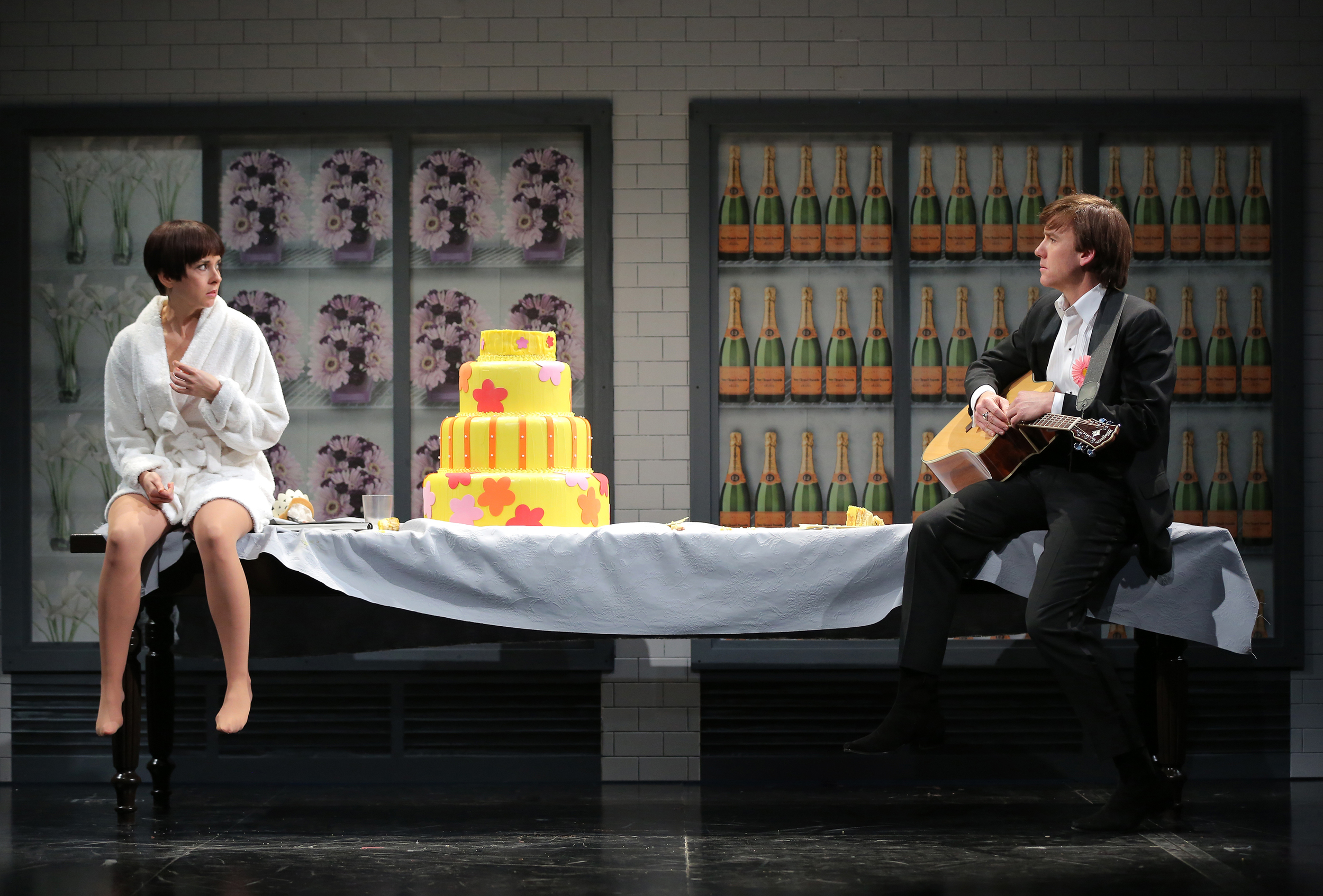Review of The Mousetrap, Hartford Stage
Famed mystery writer Agatha Christie’s The Mousetrap is probably best known for being the longest-running play in British history. It ran continuously from 1952 until the pandemic of 2020 briefly closed it. It reopened in May 2021. Perhaps that significant blip in shows is reason enough to mount a local production. In any case, though I’ve heard of the show my whole life, I’ve never seen a production before the current one at Hartford Stage directed by Jackson Gay.
The other famous thing about the show is that everyone who sees it is exhorted by a note written by Christie herself, read at the final curtain, not to reveal whodunit. And, indeed, going in, I had no idea who the culprit would be. It may be that curiosity—learning the facts of the case—and secrecy—not sharing them—has done much to keep audiences attending. If there’s something very quaint about the play—and there is—it has to do with the fact that Dame Christie set the bar for the “gathered all in one place for a period of time” murder mystery and to attend the play is to be at once reminded of all the fun tropes of the genre.
Such as: a handsome space in which characters can enter and exit in various directions (kind of like all those doors in the Clue boardgame); Riw Rakkulchon’s set is simply fun to look at, with a huge picture window framing diagonal trees, a big fireplace, back stairs, various couches and settees, and plenty of antlers. It looks like a ski lodge or a sitting room at the Overlook Hotel (and, indeed, there’s a hell of a snowstorm happening outside); so: yes, another trope: the trapped until further notice visitors are left to their own devices, and part of each “device” is how each looks, as furnished by Fabian Fidel Aguilar’s apt and inventive costumes; then add the furtive qualities of the guests at this guesthouse, none of whom seem quite on the up-and-up.
The cast of The Mousetrap at Hartford Stage, directed by Jackson Gay; photo by T. Charles Erickson
And that’s the mainstay of the play and the quality this production plays with the most. We hear—from a radio—that there’s been a murder in London and that there is a suspect at large. The description of the suspect could fit almost any of the guests and even the host, Giles Ralston (Tobias Segal) who, with his wife Mollie (Sam Morales), are newbies to the hotel business and this is their first go-round. Key to the shenanigans here is that we don’t quite believe anyone is bona fide, but the question, then, is motive.
And here the story probably would work better in narrative prose than in scenic dialogue, because we have to learn about events that motivated the first murder, having to do with local child abuse and a malevolent judge and, perhaps, grown survivors of the original infractions who may be enacting revenge. Turned into a play, the murder mystery’s device of letting suspects “hold the floor” until we think we know whether they could’ve “done it” or not becomes the main driving force. We, as audience, simply kill a few hours watching these Brit types perambulate and asseverate—earning our laughs by being silly and flighty and odd.
We’re helped in our sleuthing by the presence of Detective Sargeant Trotter (Brendan Dalton, energetic and emphatic if a bit in over-his-head) who arrives on snow-skis and has the wherewithal to try to figure out who everyone is and what connection they may have to the murder. A second murder, in situ, heats things up because now a murderer is clearly among them and anyone connected to the deceased persons is likely next or the culprit.
Foreground: Christopher Geary as Christopher Wren and Sam Morales as Mollie Ralston; background: Tobias Segal as Giles Ralston in The Mousetrap, Hartford Stage; photo by T. Charles Erickson
As the suspects/guests, Christopher Geary as Christopher Wren is a comical study in nervous mannerisms that might betoken guilt or just a lot of sensitivity; even more ominous is Jason O’Connell’s creepy but amusing Mr. Paravicini, the only guest who didn’t book ahead but instead arrived because his car allegedly overturned in a snowdrift; Ali Skamangas, as Miss Casewell, seems to have issues stemming from darkly hinted-at early trauma (otherwise she seems to be pretty well-wrapped compared to the two just mentioned); as the constantly fault-finding Mrs. Boyle, Yvette Garnier doesn’t quite have the grasp of the diction the others have—which may or may not be a clue; as Major Metcalf, Greg Stuhr is sturdy and serviceable, and tends to be more observer than observed. The host couple are affable but don’t really come forward as take-charge types, and so seem to be in constant reaction mode.
Jason O’Connell as Mr. Paravicini in The Mousetrap at Hartford Stage; photo by T. Charles Erickson
The tone veers around a bit between farce and suspense but the main note director Gay achieves is a tongue-in-cheek rendering of all the aforementioned tropes. It’s all in fun, ultimately.
And so, all in all, it’s a diverting evening, as they say. The fun is in the feeling of revisiting a sense of theater that comes with its own requirement to settle in and watch it unfold at a pace that works against our current theater’s effort to score with every breath. There is no real subtext here other than the fact that persons aren’t always who they pretend to be and that playing at anything, occupationally, is a role. Even being a killer is a part that one only takes on by enacting it—one could otherwise be as bland as milk. That, I suppose, is the attraction of a mystery and, in this sprawling production at Hartford Stage, part of the mystery is how Christie’s play plays so well after all this time.
Ali Skamangas as Miss Casewell (supine) and Sam Morales as Mollie Ralston in the Hartford Stage production of The Mousetrap; photo by T. Charles Erickson
The Mousetrap
By Agatha Christie
Directed by Jackson Gay
Scenic Design: Riw Rakkulchon; Costume Design: Fabian Fidel Aguilar; Lighting Design: Krista Smith; Original Music & Sound Design: Broken Chord; Wig & Hair Design: Carissa Thorlakson; Vocal & Dialect Coach: Thom Jones; Fight Director: Ted Hewlett; Casting: Alaine Alldaffer; Production Stage Manager: Avery Trunko; Assistant Stage Manager: Noam Lautman; Director of Production: Bryan T. Holcombe; General Manager: Emily Van Scoy
Cast:
Brendan Dalton, Yvette Ganier, Christopher Geary, Sam Morales, Jason O’Donnell, Tobias Segal, Ali Skamangas, Greg Stuhr
Hartford Stage
October 13-November 6, 2022
